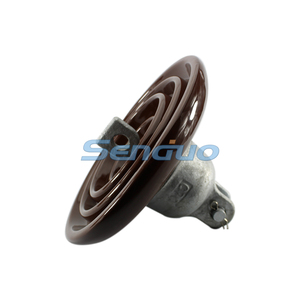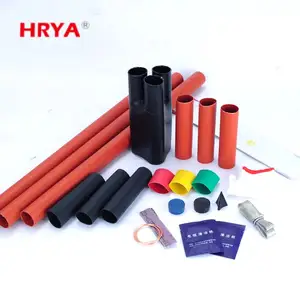Understanding 20 kV Insulator: A Comprehensive Overview
The 20 kV insulator plays a crucial role in electrical transmission systems, ensuring the integrity and safety of power distribution networks. These insulators act as barriers, maintaining the separation between live electrical wires and supporting structures, thus preventing short circuits and maintaining energy efficiency.
Types of 20 kV Insulators
When it comes to 20 kV insulators, several types are commonly utilized in the industry. Each type offers unique advantages, suited to different application needs:
- PORCELAIN INSULATORS: Known for their durability and resistance to harsh weather conditions, these insulators provide reliable performance across various environments.
- POLYMER INSULATORS: Made from composite materials, these insulators are lightweight and flexible, making them ideal for areas prone to seismic activity.
- GLASS INSULATORS: These offer excellent visibility and high dielectric strength, often used in situations requiring monitoring for wear.
- COMPOSITE INSULATORS: These are engineered to combine advantages from both porcelain and polymer variants, providing enhanced durability and resistance to pollution.
Applications of 20 kV Insulators
The versatility of 20 kV insulators allows them to be deployed in a multitude of settings:
- TRANSMISSION LINES: Ensuring the safe and efficient transfer of electricity over long distances.
- DISTRIBUTION NETWORKS: Supporting the low-voltage and medium-voltage lines critical for urban and rural areas.
- SUBSTATIONS: Acting as crucial components that secure electrical equipment while preventing ground faults.
- RENEWABLE ENERGY INSTALLATIONS: Featuring in systems like solar farms and wind turbines, ensuring smooth operation under various load conditions.
Key Features and Advantages of 20 kV Insulators
20 kV insulators come equipped with several features that enhance their functionality and reliability:
- HIGH DIELECTRIC STRENGTH: Capable of withstanding high voltages without breaking down, ensuring safety and efficiency in power systems.
- MECHANICAL STRENGTH: Designed to resist physical stresses including wind loads, seismic activity, and thermal expansion, prolonging their service life.
- DURABILITY: The materials used, whether ceramic, polymer, or composite, offer resistance to UV radiation, moisture, and environmental pollutants.
- MINIMAL MAINTENANCE: Most insulators are designed to eliminate the need for frequent maintenance, reducing long-term operational costs.






















































































































































































































































 浙公网安备 33010002000092号
浙公网安备 33010002000092号 浙B2-20120091-4
浙B2-20120091-4